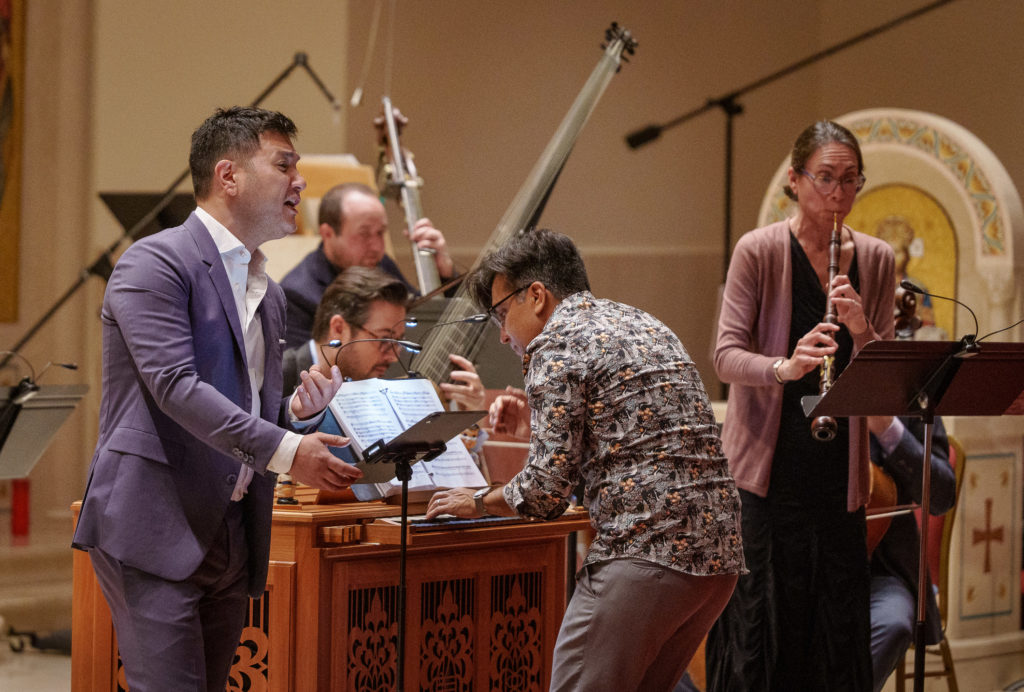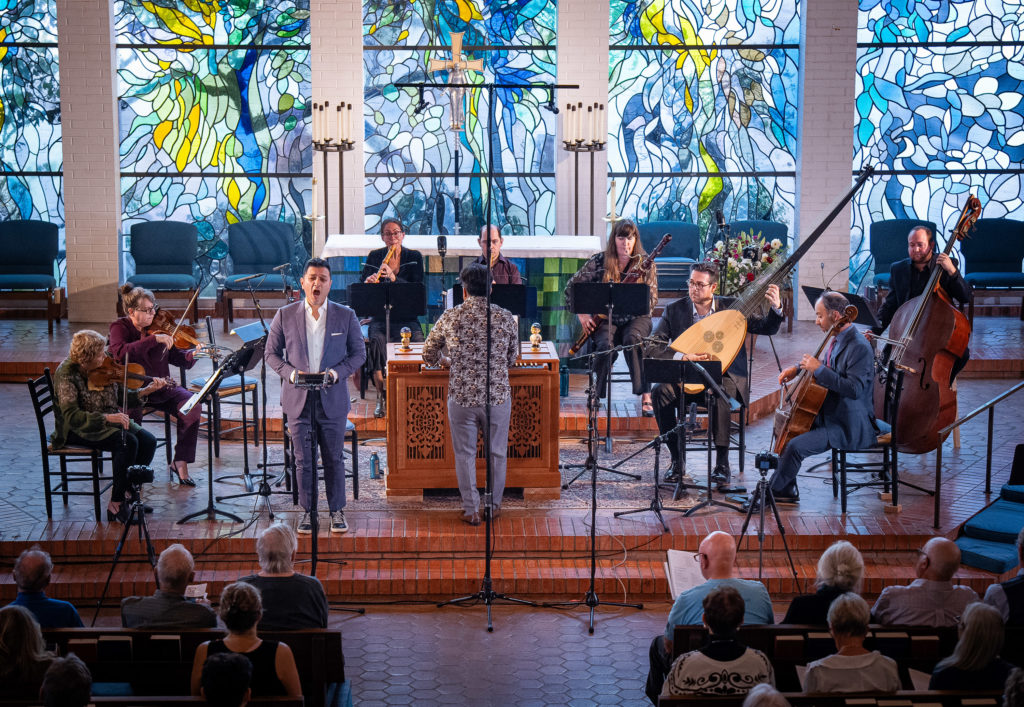Tenor Nicholas Phan’s Ravishing Homage to the Baroque Aria
Singing the vocal music of J.S. Bach has changed radically in my lifetime. Growing up in the 1950s, I recall one of my favorite recordings was an LP of Bach solo arias recorded by the Bach Aria Group, a noted ensemble of American opera singers that was launched in 1946 and regularly toured the country.
In my memory I can still pull up these gorgeous, robust Bach interpretations performed with piano accompaniment—notably a few by soprano Eileen Farrell and tenor Jan Peerce—sung with the same passion and bravura vocal technique that made these opera stars famous in the works of Verdi and Puccini.
Studying music history in college in the early 1960s, however, planted serious suspicions in my mind about the validity of performing Bach in the late Romantic operatic style of the Bach Aria Group vocalists, and by the 1970s, a more historically informed practice of early music performance took hold in many American universities, although the vocalists who participated in such musicological endeavors usually lacked the serious vocal training that traditional voice majors acquired.
Fast forward to the present—after all, this is a music review, not a music history syllabus—and we encounter accomplished, versatile singers such as tenor Nicholas Phan, who gave a stunning concert of solo Baroque vocal music with the Bach Collegium San Diego (BCSD) directed by Ruben Valenzuela this past weekend in Cardiff and at All Souls’ Episcopal Church in Point Loma.
Like the BCSD, Phan’s interpretation of late Baroque music is grounded in the best contemporary understanding of Baroque performance practice. Phan has performed as soloist with most of the major North American and European orchestras, but he also has performed roles in operas by Mozart, Donizetti, Verdi, and Stravinsky with respected companies both here and abroad. In a curious way, Phan has brought the performance of Bach arias back full circle to the early days of the Bach Aria Group, but he does not perform the music of Bach and his contemporaries with the vocal style of Verdi and grand opera the turn of the 20th century.
With the BCSD on Sunday in Point Loma, I heard Phan sing a selection of J.S. Bach arias, the solo cantata Reiner Geist lass doch mein Herz by Bach contemporary Christoph Graupner, and an additional aria by Dietrich Buxtehude. Phan’s elegant phrasing, pellucid German, and resonant vocal sonority combined with the customary panache of BCSD could not have been more rewarding.

(l. to r.) Nicholas Phan, Malachai Bandy, Kevin Payne, Ruben Valenzuela & Kathryn Montoya [Photo (c.) Gary Payne]
Following this searing musical assault, Phan soothed his audience with Bach’s gentle melodies of “Sanfte soll mein Todeskummer, ” BWV 249, a comforting aria from Bach’s Easter Cantata that would have been even more effective if Valenzuela had kept his 10-piece chamber ensemble under Phan’s delicate dynamic level. “Ich habe meine Zuversicht,” BWV 188, an aria expressing great confidence in Divine faithfulness featured a charming, florid oboe descant deftly played by Kathryn Montoya, who joined Phan in front of the ensemble for this winning solo contribution to the aria.
When Bach took the position as Leipzig’s Director of Music in 1723, the City Fathers wanted Christoph Graupner to take the position, but Graupner could not secure a release from his professional duties in Darmstadt, so Leipzig was stuck with their third choice, J. S. Bach. From Graupner’s charming cantata Reiner Geist lass doch mein Herz (Pure Spirit, let my Heart Become Your Temple), it is clear this successful composer of church music and operas displayed a gift for writing more flowing, ingratiating melodies and using a more relaxed harmonic vocabulary than Bach employed. Bach resisted the changing musical style of the 1730s, but Graupner embraced the new gallant style with its gracious melodies and amusing pictorial effects, virtues that Phan’s vocal prowess persuasively demonstrated.
Buxtehude’s aria “Herr, wenn ich nur Dich hab,” BuxWV 38 opened as a peaceful duet between Phan and Kevin Payne on theorbo, then expanded into an ingratiating chaconne that included three strings and basso continuo.
This program presented by the Bach Collegium San Diego was given on October 26, 2024, in Cardiff at the Saints Helen and Constantine Greek Orthodox Church and on October 27, 2024, at All Souls’ Episcopal Church in San Diego to open the company’s 2024-2025 season.

Ken Herman, a classically trained pianist and organist, has covered music for the San Diego Union, the Los Angeles Times’ San Diego Edition, and for sandiego.com. He has won numerous awards, including first place for Live Performance and Opera Reviews in the 2017, the 2018, and the 2019 Excellence in Journalism Awards competition held by the San Diego Press Club. A Chicago native, he came to San Diego to pursue a graduate degree and stayed.Read more…

